well, good luck with that, I have seen something similar to my plant from another grower and a more 'sativa' expression but very similar from a spanish grower, you should find something interesting in your pack.. I know when I got them they were very fresh and cracked open within 24 hours.. but that was 7 years ago
Info on The Real Seed Company?
- Thread starter Thread starter Koondense
- Start date Start date
palmero
Active member
namkha replied to namkha's topic in The Real Seed Company
...makes greathigh mountain charas
as links dont work...
sry
peace
...makes greathigh mountain charas
as links dont work...
sry
peace
I lied, here's more pictures.. we had incredible weather in September and October so far.
I plan on taking it down in a week.
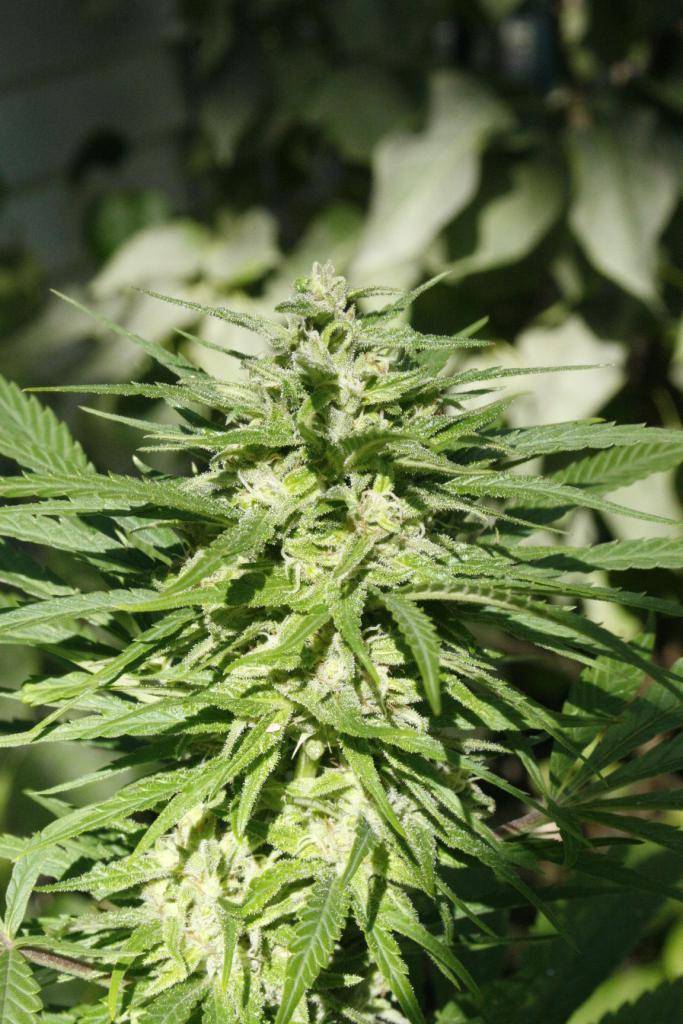
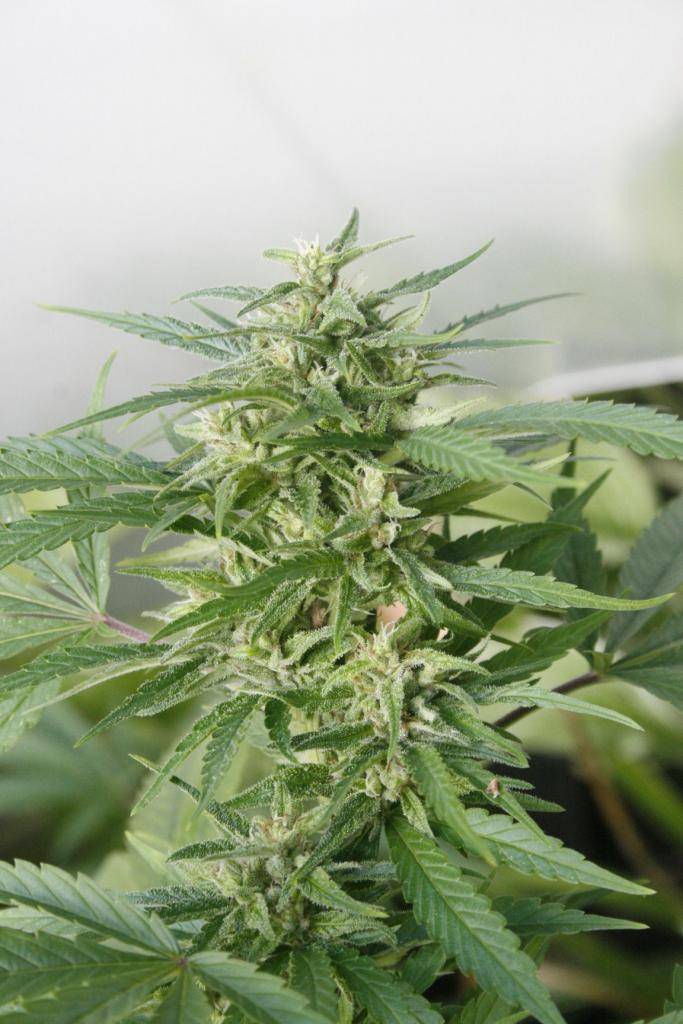
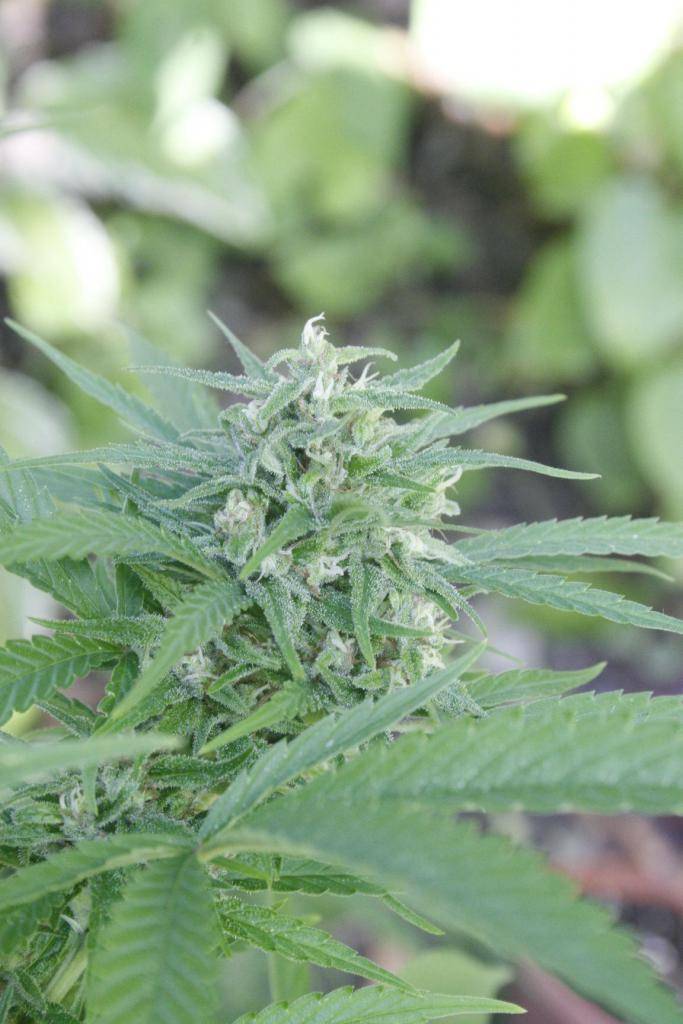
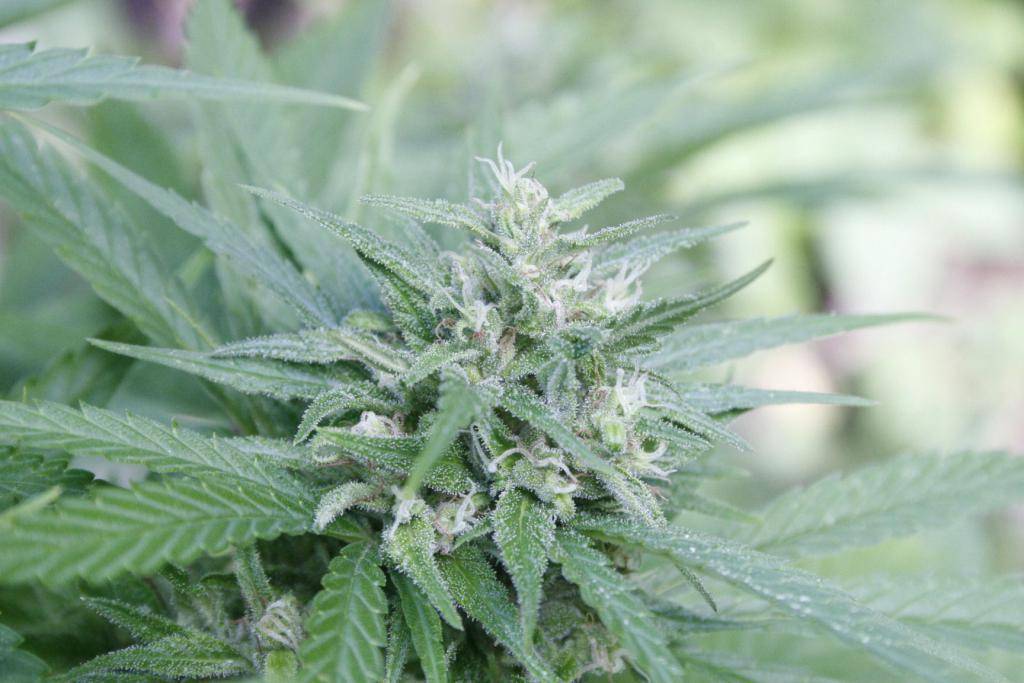
I'll take some full pics then, but it really looks like a smaller version of the first pictures for the Kumaoni on the rsc website ( the one on the left ) even if my Nepalese wasn't from that seedline.. it's just the Nepalese Charas look..
It's hard to classify those plants with the Indica/Sativa labels. what do you guys think?
I plan on taking it down in a week.
I'll take some full pics then, but it really looks like a smaller version of the first pictures for the Kumaoni on the rsc website ( the one on the left ) even if my Nepalese wasn't from that seedline.. it's just the Nepalese Charas look..
It's hard to classify those plants with the Indica/Sativa labels. what do you guys think?
well, I took it down
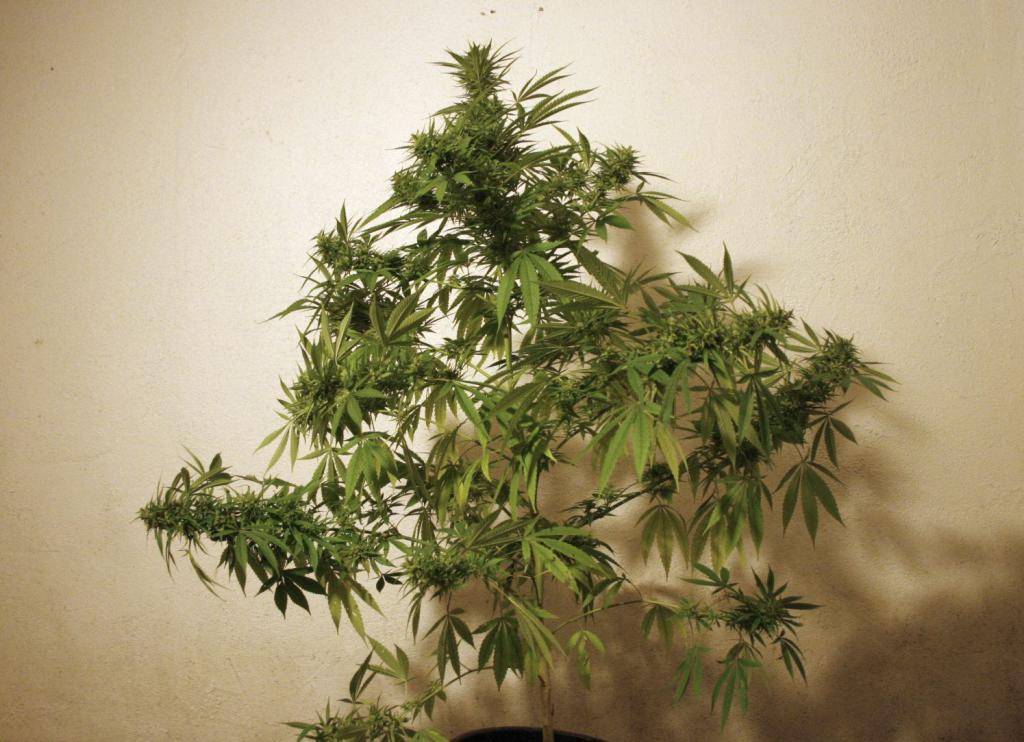
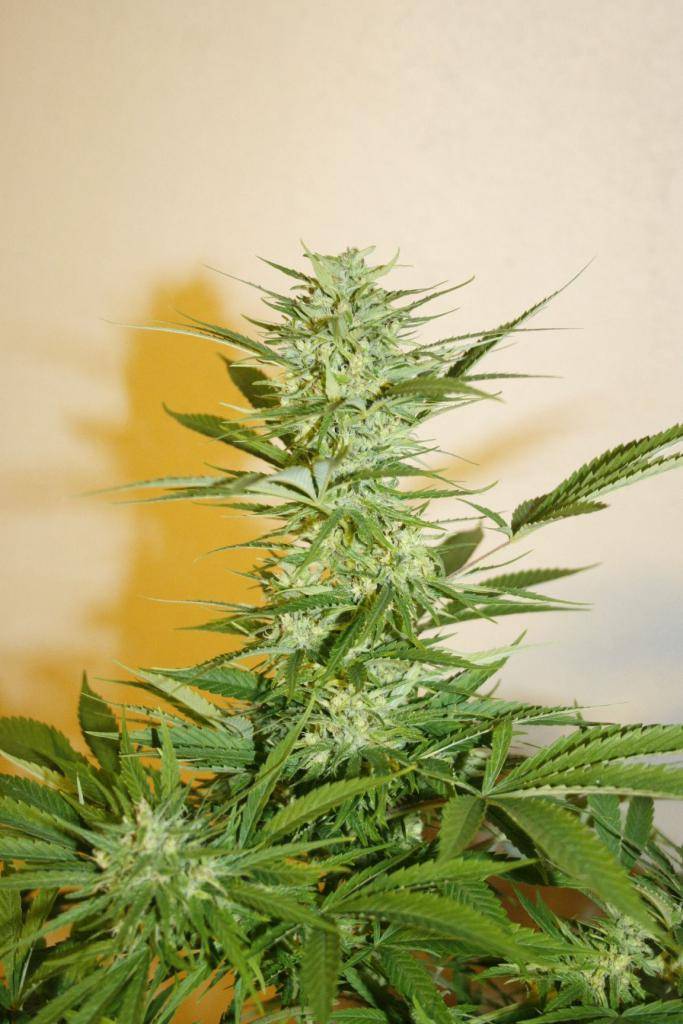
it was in a 10 gallon pot, ended up around 5' tall, it's as wide as it is tall and it has that zig zag stem from the nepalese,
I think it looks like a Nepalese mountain hashplant ..
Sour-Musky Pine was the aroma at harvest. the scissor hash was nice, relaxing, floating but heavy.. with a peppermint candy taste.
it was in a 10 gallon pot, ended up around 5' tall, it's as wide as it is tall and it has that zig zag stem from the nepalese,
I think it looks like a Nepalese mountain hashplant ..
Sour-Musky Pine was the aroma at harvest. the scissor hash was nice, relaxing, floating but heavy.. with a peppermint candy taste.
My 2 cents about RSC. I haven't yet consumed any of their gear, but here are the positives so far:
7) possible source of disease/mold resistance, cold tolerance, and other favorable
genetic characteristics that modern hybrids lack. can't confirm any of these characteristics yet.
also drought resistance (e.g. Middle Eastern strains), unusual cannabibinoids, unusual terpenoids, and the highs and effects that they produce
one of the main things is the types of highs you can get: vibrant, happy, euphoric, enjoyable (which so many modern strains are not), stimulating, trippy
1) Hermi ratios seem higher overall compared to worked seeds. It might be a good idea to grow these away from modern hybrid crops.
not a problem when these are grown right - ask Troutman if you doubt this...
don't overfeed, and ideally grow into soil so they can put down roots
4) Yields on many strains are really bad. You'll have a ginormous tree trunk that takes up incredible amounts of space and you'll harvest a couple of grams from it, if it finishes on time (outdoors at least). some take up a lot of space.
yields on most strains are excellent
the only ones which yield low are the Himalayans under poor or unsuitable conditions - and even then, grown as intended in good land, the Himlayans will go to +3m and will provide plenty of buds for resin production
5) some varieties seem have high male to female ratios, and others have high female to male ratios. Could be just the luck of the draw too, I don't know, sample sizes are too small to make any conclusions.
some (only some) ganja cultivars can show few males
but this isn't true about strains having high male ratios
7) some varieties have low vigor and high ratio of runts. This isn't only my experience, I've read many others with similar reports. In addition, in some cases, seed viability is variable: if they come from the region of origin, my guess is the original sources aren't highly educated masters in seed harvesting/storage, but kudos to the RSC for getting these out to us! Seeds produced by professionals outside their region of origin have a very consistent, high germination rate.
the only strains that have exhibited this are the Malana and Parvati, and it has only been a problem with certain batches
***
about growing +50 seeds
I'd advise anyone who is growing these plants for serious breeding work to do this
but for someone who is growing for personal enjoyment this isn't true, especially if you are making charas
equally, there are ganja strains where almost all plants in a batch of seeds will be good or excellent
the cross looks lovely
it's Nepalese x what?
for people asking about the Nepalese being discussed here
it is from Pokhara, Nepal
but it's a specific charas cultivar, not like the multipurpose village cultivars that people bring back from the Annapurna trek
it was released as Nepalese Highland and as just Nepalese
I will try to be more consistent about names in the future
I haven't released the line again, as the original source was unreliable
I wonder if anyone kept it pure
it's Nepalese x what?
for people asking about the Nepalese being discussed here
it is from Pokhara, Nepal
but it's a specific charas cultivar, not like the multipurpose village cultivars that people bring back from the Annapurna trek
it was released as Nepalese Highland and as just Nepalese
I will try to be more consistent about names in the future
I haven't released the line again, as the original source was unreliable
I wonder if anyone kept it pure
the cross looks lovely
it's Nepalese x what?
for people asking about the Nepalese being discussed here
it is from Pokhara, Nepal
but it's a specific charas cultivar, not like the multipurpose village cultivars that people bring back from the Annapurna trek
it was released as Nepalese Highland and as just Nepalese
I will try to be more consistent about names in the future
I haven't released the line again, as the original source was unreliable
I wonder if anyone kept it pure
It's nepalese x green pck x old timer's haze.
It's a great outdoors plant, indoors the switch to 12/12 is enough to stress it, it will throw a few male flowers really early and then carry on flowering like nothing happened, I've not run into this outdoors because the shift is more gradual. I don't fertilize heavily but it has never complained when I did.
this is from the nch #3 seedline, there's basically no haze influence in that line. the original was a good mix of the two main plants..
in subsequent grows I got some more green PCK expressions.. this year was 90-95% Nepalese.
Usually the PCK expressions are a little more resinous and the bud structure is different.
About seed repro, I grew about 10 plants and my original Nepalese was the only one that started flowering in mid august, which is a must for my climate, the other plants only started flowering in mid september. so I couldn't get anything going, I just happened to have a pck male next to it
I remember on the rsc forums seeing a few good plants but I Really don't know if anyone reproduced them.. I think I may have a few seeds left but they are getting old and I don't have room or time to reproduce plants.
Last edited:
also drought resistance (e.g. Middle Eastern strains), unusual cannabibinoids, unusual terpenoids, and the highs and effects that they produce
one of the main things is the types of highs you can get: vibrant, happy, euphoric, enjoyable (which so many modern strains are not), stimulating, trippy
not a problem when these are grown right - ask Troutman if you doubt this...
don't overfeed, and ideally grow into soil so they can put down roots
yields on most strains are excellent
the only ones which yield low are the Himalayans under poor or unsuitable conditions - and even then, grown as intended in good land, the Himlayans will go to +3m and will provide plenty of buds for resin production
some (only some) ganja cultivars can show few males
but this isn't true about strains having high male ratios
the only strains that have exhibited this are the Malana and Parvati, and it has only been a problem with certain batches
***
about growing +50 seeds
I'd advise anyone who is growing these plants for serious breeding work to do this
but for someone who is growing for personal enjoyment this isn't true, especially if you are making charas
equally, there are ganja strains where almost all plants in a batch of seeds will be good or excellent
These plants below seem to be in perfect health and grown right, anyone disagree? No possibility of light leaks, these are outdoors in the forest:
RSC mazar i sharif. the one female plant I did get seems to be yielding pretty well considering how late it was started:
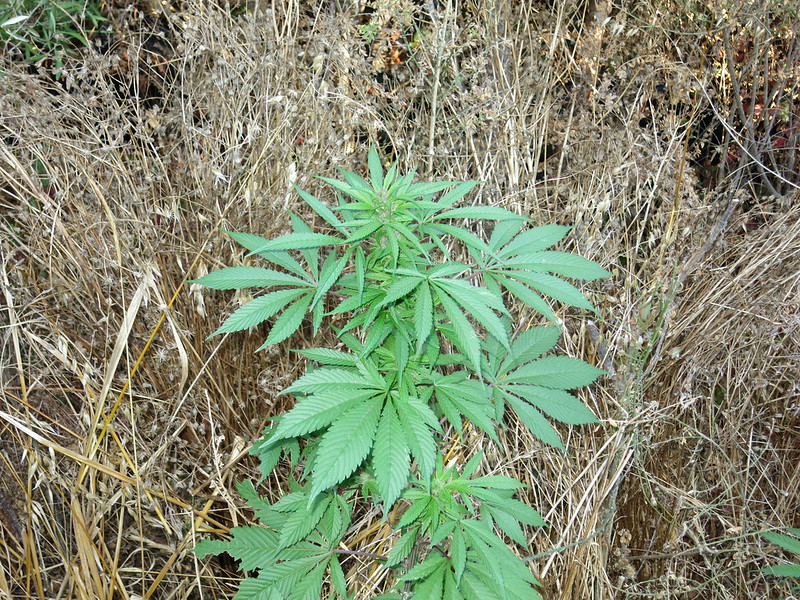
RSC Kumaoni looking pretty happy:
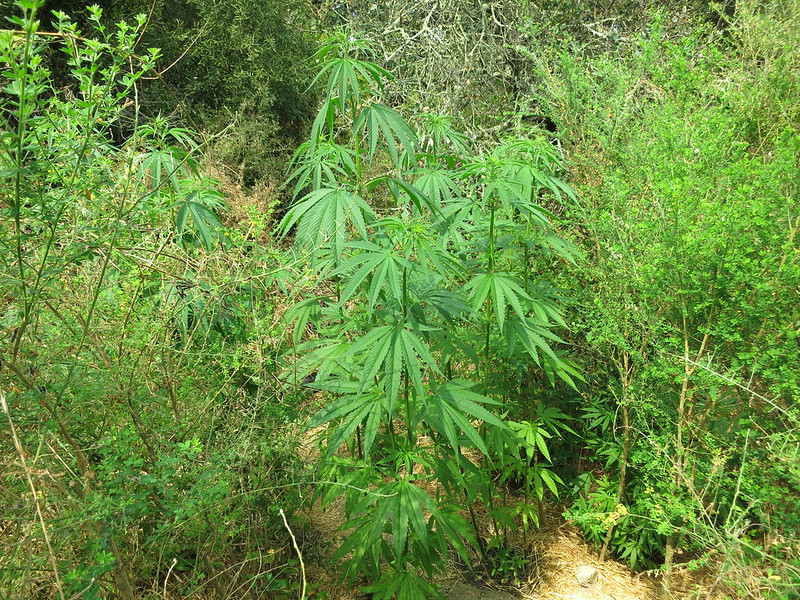
Lebanese: again, look at the leaf tips, zero burning:
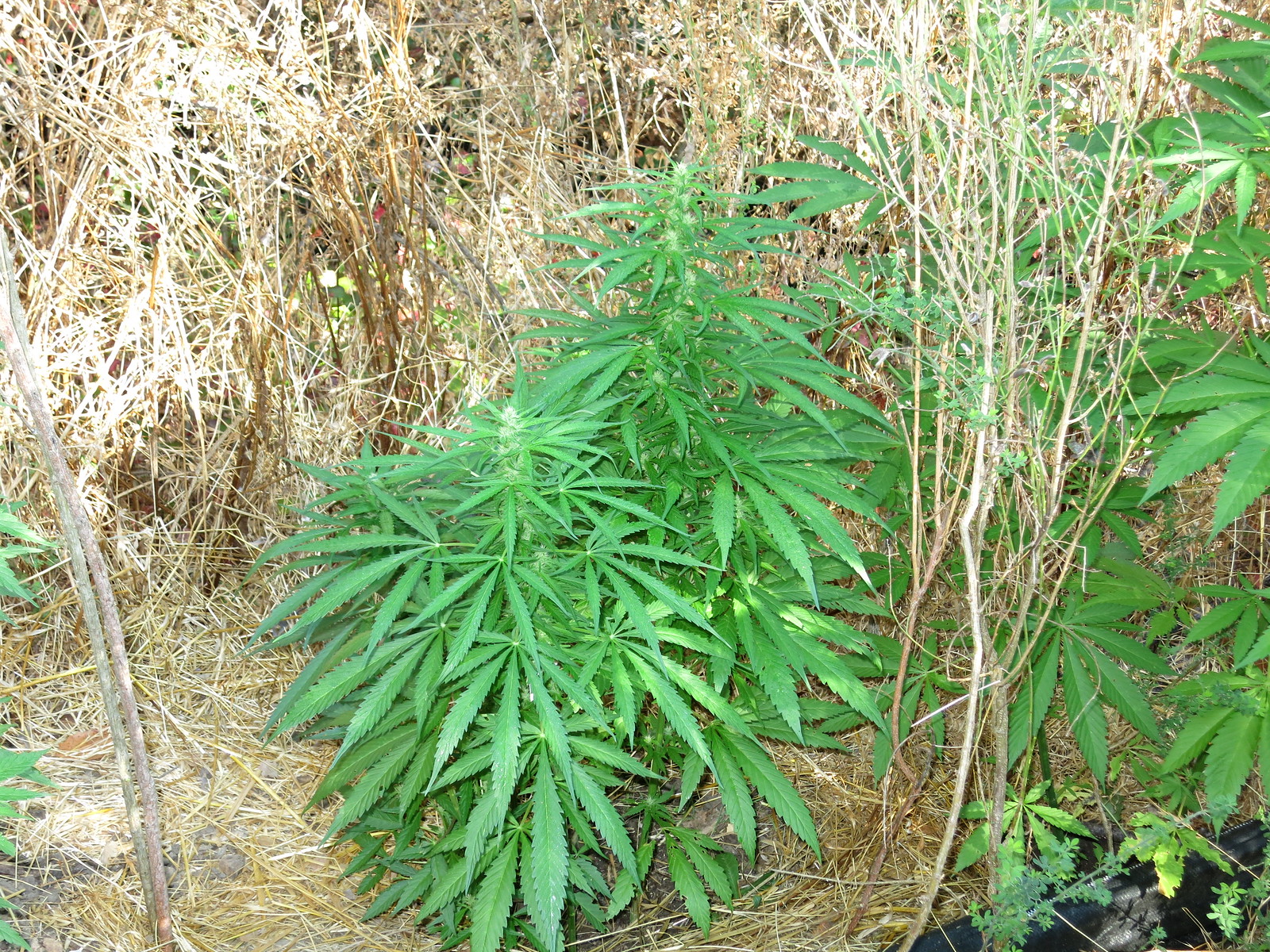
Check the leaf tips, zero burning, which indicates soil fertility was kept optimal. The only plants that showed any stress were the malanas and one manipuri plant, but they didn't hermi!:
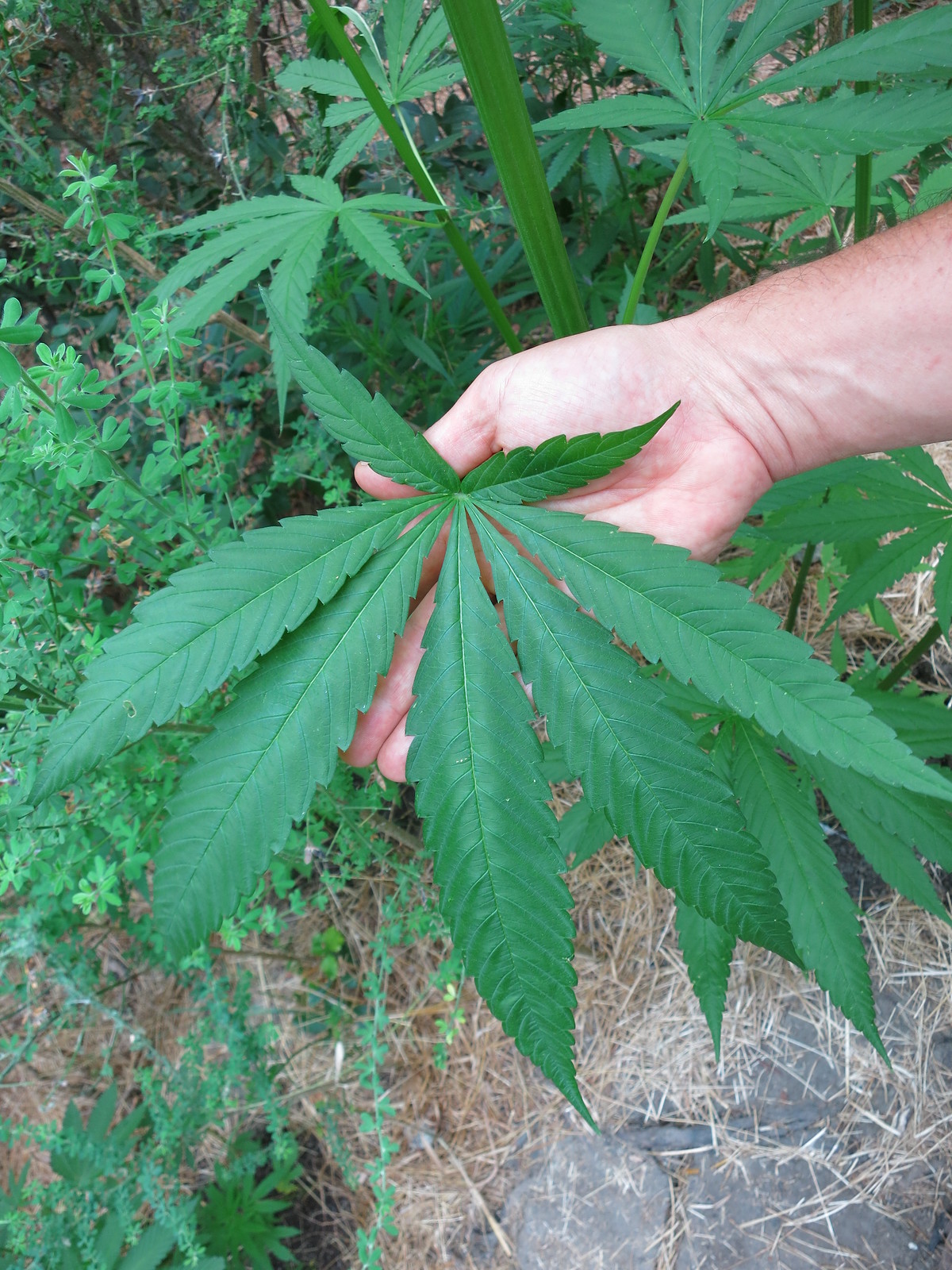
From my experience, strains that showed no hermaphrodites:
1) malana (previous batches had reported hermi issues, but recent batch seems to be hermi free from my experience).
2) Kumaoni-high male ratio, but a really exotic, amazing aroma on the few females!
3) manipuri (however, others have reported issues).
4) mazar I sharif (however, high frequency of runts from the small batch tested. Will have more data in the future).
Strains that showed hermis:
1) lebanese (showed up early and mid flowering. A little more difficult to manage. Pollen is viable, so be careful!)
2) nanda devi (early forming single male flowers in the nodes. Definitely manageable).
Regardless of hermi issues, these were still quite a pleasure to grow! It just means you should keep an eye out and select against them if you can.
My assessments of yields are based on plants grown intentionally on the smaller side and compared to modern hybrids grown in the exact same manner. I don't have any use for lbs of this stuff! A well grown runt vegged for a long time can still yield decent. From my experience, With regards to yield, the best representative individuals of the strain will likely have high yields, but when small hobby sized grows are done, you can expect the yield to vary in:
1) malana (moderate yield on the best plant, rest are very low yield)
2) kumaoni (varying from good yield on my best plant that is near 3 meters tall to very small on a 2 meter tall plant)
3) lebanese (from relatively high yield to moderate)
Last edited:
7Scorpions
Member
September to early October pics of the Sinai....hitting her with Afghani Black pollen this week
I haven't released the line again, as the original source was unreliable
I wonder if anyone kept it pure
I'm very interested in this line. If you do get the opportunity, please can you bring it back!
I'd also love to see the MIS kept around for a bit longer (preferably indefinitely) too, since I'm between safe addys for the time being.
Thanks again for all your efforts to preserve all these valuable lines!

Yeah all Nepalese lines from seedbanks nowadays seem tainted with Dutch genes. A good old Nepalese hashplant would be a nice addition to RSC catalogue.
Indian lines are interesting for their amazing outdoor rusticity, frost and pest resistance, versatility, flowery terpenes and moderate harvest time but they lack potency in average. There is a reason why Nepalese temple balls were the most sought after type of Himalayan charras in the days
Indian lines are interesting for their amazing outdoor rusticity, frost and pest resistance, versatility, flowery terpenes and moderate harvest time but they lack potency in average. There is a reason why Nepalese temple balls were the most sought after type of Himalayan charras in the days
There is a reason why Nepalese temple balls were the most sought after type of Himalayan charras in the days
Yeah, it was because of temple balls that I became interested in Nepalease strains.
Is it even possible to replicate the high/effects from temple balls though? The word was that proper temple balls were opiated.
Yeah all Nepalese lines from seedbanks nowadays seem tainted with Dutch genes.
I'm sure the Baglung (BlueHemp) Nepali is an example of an old pure Nepalese line (check my recent posts for more), but lots are after it right now it seems, so getting hold of it is not easy.
Another pure line from RSC would certainly be a very welcome addition to the available gene pool!
To me opiated haschich was mostly a way for a seller to get rid of bad quality resin. Drop a few gs of brown sugar into you shitty resin, mix evenly et voila! You got the bomb! Where i'm from it went by the name of black bombay. There has probably been a traditional recipe of opiated charras but I doubt farmers would adulterate all their crop this way.
Your Baglung Nepali looks great, that's the kind of plant I'd love to find wether it be landrace from scratch RSC style, or a worked IBL as long as it's not "westernized"
Your Baglung Nepali looks great, that's the kind of plant I'd love to find wether it be landrace from scratch RSC style, or a worked IBL as long as it's not "westernized"
I wasn't around when temple balls were coming around in the 70s but I also had heard that opiated temple balls with the white streaks were actually moldy hashish.
To me opiated haschich was mostly a way for a seller to get rid of bad quality resin. Drop a few gs of brown sugar into you shitty resin, mix evenly et voila! You got the bomb! Where i'm from it went by the name of black bombay. There has probably been a traditional recipe of opiated charras but I doubt farmers would adulterate all their crop this way.
I'm also skeptical that temple balls were opiated, but back in the early 90's when I managed to get hold of a small sample (1/4 or perhaps 1/2 oz IIRC), we were also getting plenty of other types of hash from other regions to try, and the effects from the Nepali hash were something else, so I've always wondered what the truth was!
Your Baglung Nepali looks great, that's the kind of plant I'd love to find wether it be landrace from scratch RSC style, or a worked IBL as long as it's not "westernized"
The nice thing about the Baglung is that it's properly worked and ready to go. Most phenos are reasonable, for me at least, although I would like to try to work the line towards the darker phenos.
It would also be nice to work through the RSC line to see what variations that throws up, but I think that would deserve/need a fair bit more time/space than I have to spare right now, so it would have to wait. Of course I'd have to have some stock to begin with!

I wasn't around when temple balls were coming around in the 70s but I also had heard that opiated temple balls with the white streaks were actually moldy hashish.
I can't remember any streaks in the temple ball sample I got. As far as I remember it was a very even chestnut-brown colour throughout, and very pliable.
Sounds good!
From their site:
Cheers
From their site:
Highland Thai
Region: Southeast Asia
Strain: Highland Thai
Genetics: Thai-Burmese, possibly Chinese
Latitude: 19° N
Regional Maturation: late December
Height: up to 4m
Characteristics: large plants; green and purple phenotypes, with unusual aromas; mild high
This is an unusual Highland Thai cultivar from the highlands of Northern Thailand and the nearby border regions of Burma, and is possibly ultimately of Chinese origin. It may be based on indica var. chinensis cultivars, possibly hybridised with narrow leaflet ganja cultivars.
This strain is cultivated by various ethnic groups in the region, including the Lahu hilltribe. Its appearance and effect are markedly different from those of the Thai-Lao ganja genepool of Northeast Thailand. It seems to have many characteristics of Yunnanese indica var. chinensis.
The Highland Thai strain can grow exceptionally tall, given space, potentially reaching over 4m in soil outdoors. Plants can have medium width leaflets, notably broader than typical Thai ganja cultivars. Seeds are also large, suggesting a genetic connection to Yunnanese chinensis strains. This is also supported by their habit of growing to a single, tall stem when planted in small plots. Stems can also be hollow, again suggesting a fibre cultivar heritage.
Plants have large and resinous calyxes, with slightly denser bud formation than is usual for a Southeast Asian strain. There are two main phenotypes, namely green and purple. Green types often have a musky, citrus aroma, and purple-blue phenotypes typically have more mango-carrot scents.
The high from this strain is typically mild, with a more relaxing and gentle effect than the intensity associated with Thai-Lao ganja cultivars. Modest THC levels with some CBD can be expected.
This is a rare and little seen strain that is recommended to collectors and breeders.
Please note: these seeds are from a reproduction grow.
Cheers
Blind Joe Death
Active member
I may have missed it but looking for info on the Highland Thai from RSC. It says it is from north western area and more mellow in feeling than the eastern variety. Sounds good from the info given in the ad for it.
Yesum, if you look in this Thai thread the information should be there https://www.icmag.com/ic/showthread.php?t=245830
It's a lot to read through but very informative
Edit: I see you've already been in the thread...either way the information may be in there


